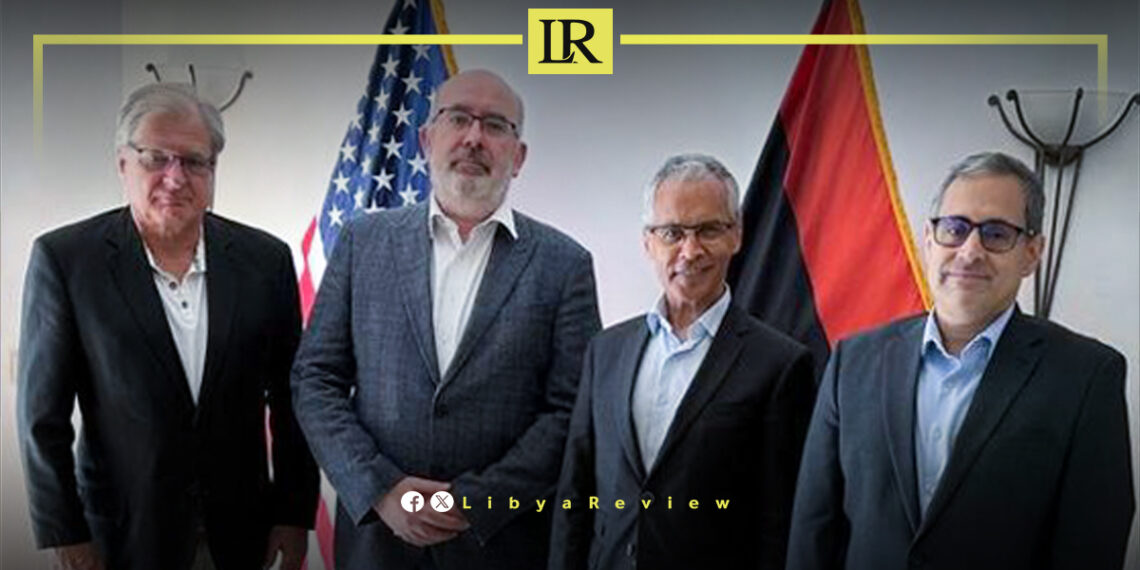On Sunday, the embassies of France, the United Kingdom, and the United States expressed strong support for Stephanie Khoury, head of the United Nations Support Mission in Libya (UNSMIL), in her efforts to resolve the escalating Central Bank of Libya (CBL) crisis.
Following consultations held in Tunis today, the embassies issued a joint statement emphasizing that the ongoing crisis threatens the economic and financial stability of Libya.
As Libyan parties prepare to resume talks on Monday, facilitated by UNSMIL, the Western embassies urged Libyan leaders to reach crucial agreements that would restore institutional integrity and ensure the stability of the CBL. They highlighted the importance of the Central Bank’s role in maintaining Libya’s standing within the international financial system.
In their statement, the embassies encouraged all parties to work towards long-term agreements that ensure the fair distribution of Libya’s oil revenues, which are vital for the country’s economic recovery and benefit for all its citizens. They also warned against any unilateral actions that could further destabilize the country and urged all sides to take concrete steps to de-escalate tensions.
Libya has been embroiled in a serious financial crisis following the controversial appointment of a new governor for the Central Bank.
On August 20, 2024, the Presidential Council appointed Mohammed Al-Shukri as the CBL governor, a move that was immediately rejected by the House of Representatives and the High Council of State. This political rift has deepened the country’s institutional and financial instability.
In response, the Presidential Council took further action by appointing a new CBL board of directors and naming Abdul Fattah Abdul Ghafar as the bank’s head. These appointments were made as a countermeasure to the Eastern Parliament’s decision to strip the Presidential Council and the Government of National Unity (GNU), led by Prime Minister Abdul Hamid Dbaiba, of their authority in the west of Libya.
Libya’s economy is heavily reliant on its oil sector, and the distribution of oil revenues has long been a source of tension among the country’s political factions. The Central Bank, which manages these revenues, plays a crucial role in ensuring that the wealth generated from oil is distributed fairly across the country. Any instability within the bank has a direct impact on Libya’s economy and threatens to further entrench political divides.
Western embassies emphasized the importance of resolving the Central Bank dispute quickly to prevent further damage to Libya’s financial system. The joint statement underscored that stability within the CBL is essential for the international financial community’s confidence in Libya, as well as for ensuring the fair allocation of resources to all regions of the country.


